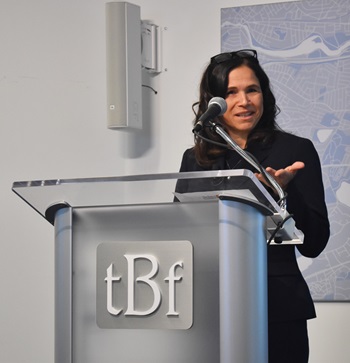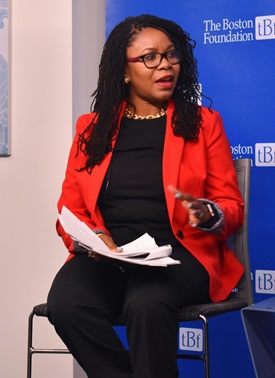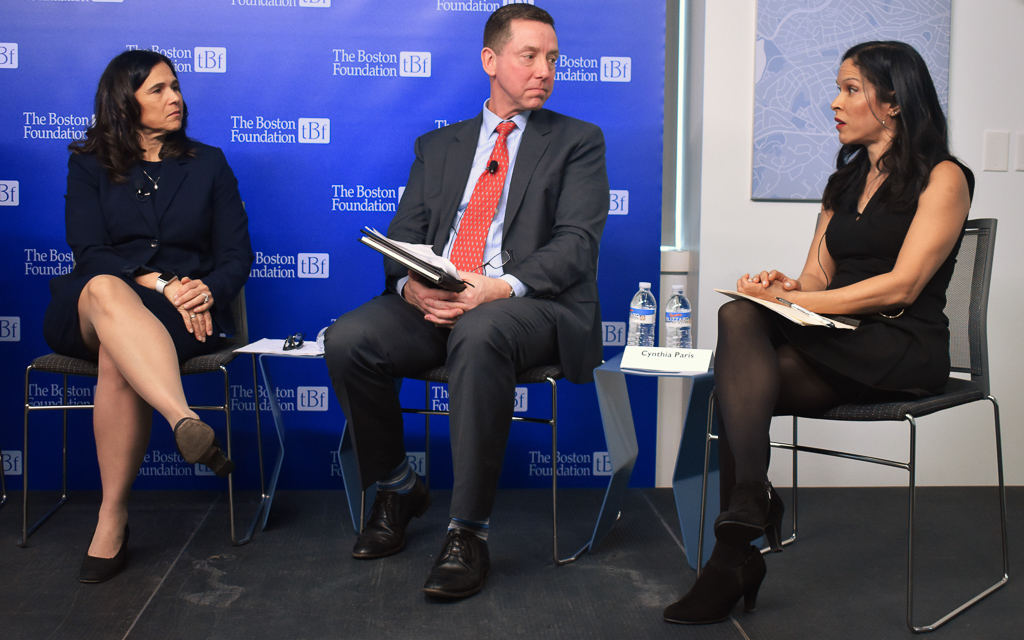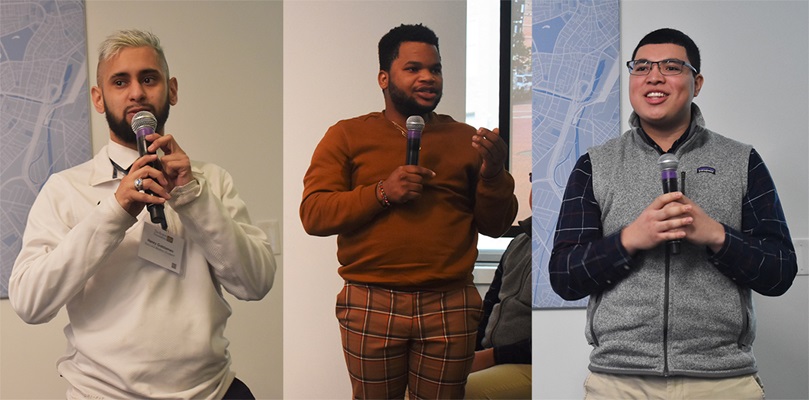What’s Next for Boston’s Public Schools?
Superintendent Brenda Cassellius Shares Her Vision
January 30, 2020
On January 30, Boston Public Schools Superintendent Brenda Cassellius presented an update on her first 100 days in office to a capacity crowd at the Boston Foundation in the Edgerley Center for Civic Leadership.
Those 100 days have been jam-packed. Cassellius and her teams have been visiting schools (all 125 over 135 buildings), conferring with faculty and staff, listening to community organizations and looking carefully at the assets and gaps of the existing school system. Using Theory of Change, a specific methodology for planning, participation and evaluation used by corporate, philanthropic, nonprofit and government sectors to promote change, the superintendent’s office produced a strategic plan. Replete with the affirmed vision, mission and core values of the organization and with commitments, strategies to achieve them, the plan includes metrics to track progress. Substantial as that is, she said, “This is not a strategic plan that will sit on a shelf. It’ll be used every day and serve as a living document that we’ll adjust and adapt in response to results and feedback.”
By turns visionary and practical, Cassellius avowed that her administration would be “bringing the juice to BPS.” That JUICE being the system’s core values: Joy, Unity, Inclusion, Collaboration and Equity. It’s an apt acronym to capture the force of optimistic energy she aims to bring to achieving the goals committed to in the strategic plan. In sports parlance, juice is that little extra bit of effort needed to excel.
She is especially sanguine about the strategic plan because Boston Mayor Marty Walsh recently added $100 million to the BPS budget over next three years. He simultaneously made a commitment of $500 million in housing investments. Housing stability is a deep concern for educators, Casselius said, noting that BPS has 4,500 students experiencing homelessness, and that “more stable families mean more stable schools.”
After a few follow-up questions, Boston Foundation Associate Vice President for Education to Career Elizabeth Pauley invited four panelists to join Cassellius on stage for a broad discussion. Worcester Technical High School Principal Kyle Brenner, BPS parent and community organizer Fabienne Eliacen, Verizon Community Engagement Director Cathleen Finn, and Lawrence Public Schools Superintendent Cynthia Paris all shared their concerns, experience and advice for the superintendent. Trust was a theme that ran throughout, followed by courage, connection and preparation.
Brenner spoke passionately though modestly about the turnaround at his school, which had been one of the lowest performing vocational-technical schools in the Commonwealth, slumping in its original 1918 building. With a heavy emphasis on engagement and connection, the community supported a rebuild. Brenner recalled how students really appreciated the slick new building—upon first entering it they exclaimed, “This is for US?” It is a “working school,” with a café, hair salon, car repair and other public facing amenities. With these blurred lines between school and community, students have felt a responsibility to prove that the $90 million the community invested was worth it. For example, Brenner said the school “owned” and then bit by bit improved its bad MCAS data.
Finn called Worcester Tech a “showpiece for our state, and for the nation,” a real example of what was possible and confirmed that businesses wanted to be part of the school ecosystems and career pipelines. Change is hard, though, all acknowledged, and Paris offered advice to Cassellius by way of an analogy: “I often think of a superintendent as the director of a film. Your vision is how you tell the story. As a director, you know how the story ends. You have to think about the cameras, the actors, lighting, sound—those are all the people and you have to orchestrate all of that. But you have to have the courage to do many retakes—to cut, and re-set the stage—along the way. Those are your data points. You’re able to move forward because you know how the movie ends and by reinforcing that with support and training and being a cheerleader, you will get there.”
After 100 days, Cassellius seems to have the foundation—and support of her peers—in place to meet a challenge that Boston Foundation President and CEO Paul Grogan set out in his opening words: “We need a way forward that’s compelling but also plausible.”




